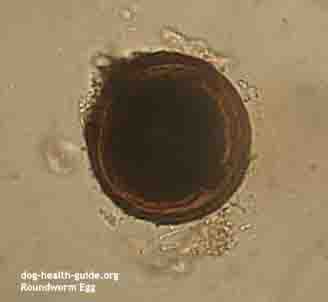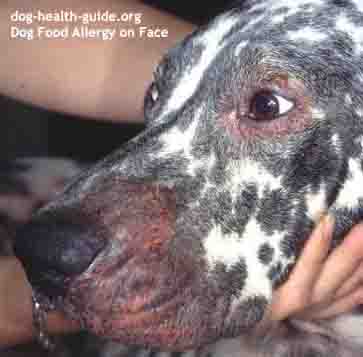Summary:
"Signs of dog vomiting and diarrhea can be due to a chronic or simple condition. Common causes include ingestion of a foreign object that gets stuck in the intestines (sticks, bones), a food allergy or intolerance related to a change in diet (also often accompanied by skin itch), and the ingestion of toxins such as an insecticide. A complete list of causes are listed below. Diagnosis is based on the consistency of the diarrhea, color of the vomit and a complete examination of your dog.
If the only symptom is diarrhea and vomiting, then following these instructions for calming the digestive system with a bland diet. If you see no improvement in 48 hours, or if the vomiting and diarrhea is accompanied by other symptoms such as lethargy (weakness) and blood, then consult with a veterinarian to rule out non-diet related causes. Remember, some causes can be spread to humans such as giardia or roundworms, so handle your dog with care and seek veterinary help for early treatment. Most cases of "self-limiting" diarrhea (no underlying causes other than gastrointestinal" will resolve itself in 1 to 5 days."
Overview
Dog vomiting and diarrhea can be symptoms of a mild problem that will pass without any treatment or a serious condition that requires immediate treatment. The most common cause is a dog eating something they shouldn't have such as grass or human food. If the dog with diarrhea and vomiting experiences symptoms such as blood in the vomit or bloody diarrhea, lethargy, or if the dog becomes unresponsive, then seek medical help as soon as possible.
If everything is normal with the exception of the vomiting and diarrhea, then follow these instructions for withholding food and then introducing a bland diet in order to calm the digestive system (do not withhold water for more than 2 hours). This approach will resolve the problem over the next 2 to 3 days. It is natural for a dog to be less active when not feeling well. Limit activity until the patient is feeling better. If you do not see any improvement after 48 hours, then see a veterinarian.

Treatment requires a dewormer such as Pyrantel.
Symptoms and Dog Vomit Color
Vomit itself is indicative of certain problems based on its color, smell, and whether there is the presence of blood.
Color of Dog Vomit and indicated canine disease:
- Clear: caused by saliva that comes from the stomach. If blood is present it is due to irritation.
- Dog Vomit Yellow: stomach bile that has been digested. Any blood is due to irritation in the gastrointestinal system.
- Green: Bile from the part of the small intestine that is connected to the stomach (called the duodenum).
- Brown with smell: something obstructing or blocking the intestine or if part of the intestine is paralyzed (called ileus).
Your veterinarian will also ask about when your dog vomits. If vomiting occurs after eating it usually means that there is some type of inflammation in the digestive tract or that there is some type of obstruction.
If your dog hasn't recently eaten and you see undigested food 6 hours after eating then your dog could have a blockage in the area where the stomach connects to the intestine (pyloric obstruction) or a general weakening of the stomach (canine gastric atony).
If there is force behind the vomiting, called projectile vomiting, it is indicative of a problem where the intestine attaches to the stomach.
Causes
If the dog vomiting and diarrhea continues for more than a day, or if symptoms are accompanied by bleeding, lethargy and other symptoms, then a veterinarian needs to be consulted to test for and eliminate the following potential causes:
- Colitis: This condition causes diarrhea along with symptoms such as small stool, attempts to frequently defecate, softer feces that contains mucous or blood, straining when defecating.
- Inflammatory bowel disease (IBD): Dog vomiting and diarrhea symptoms may be associated with inflammatory disease in the small intestine. It is also seen in diarrhea of the large intestine in 20% - 30% of dogs with colitis. It is caused by a food intolerance. The condition is treated by switching to a hypoallergenic diet with proteins other than beef and chicken such as duck, venison and fish.
- Pancreatitis (inflamed pancreas): Symptoms include lethargy, weakness and severe vomiting. Onset could be caused by table foods that have high levels of fat. Chronic cases can be life threatening.
- Pancreative Insufficiency: When the pancreas is not operating normally (not producing the normal levels of digestive enzymes), it can cause dog vomiting and diarrhea. The condition causes weight loss in some dogs that can range from moderate to severe.
- Plasmacytic lymphocytic: form of irritable bowel disease caused by diet, infection or no known cause.
- Eosinophilic: white blood cell problem
- Lymphangiectasia: dilated or enlarged lymph glands
- Intestinal
parasites Several types of intestinal parasites (parasitism) can
cause dog vomiting and diarrhea. Veterinarians will perform a test on
the feces to check for worms and protozoa. Tests will look for:
-- Worms: Hookworms, Whipworms, Roundworms
-- Protozoa: Giardia, Coccidia - Bacterial overgrowth (antibiotic responsive diarrhea)
- Intestinal tumors
- Bacterial or fungal infection
- Exocrine pancreatic insufficiency: problem digesting food due to lower than necessary pancreatic enzymes
- Distemper Virus
- Cardiac arrest
- Upper airway blockage
- Pneumonia
- Blood hemorrhage in a specific spot (called a profound hemorrhage)
- Severe decrease in blood volume or circulating blood (hypovolemic)
- Shock caused by poor blood circulation (distributive shock)
- Septic shock (shock caused by infection called sepsis)
- Oxygen issues associated with the gastrointestinal (GI) organs

Dog Vomiting After Drinking Water
A dog that throws up after drinking water can have multiple causes depending on how often it occurs, what your dog is doing, and if she is showing any other unusual signs. Potential causes include chugging water (drinking too fast), Megaesophagus (muscles of the esophagus do not function properly), Collapsing Trachea (seeing toy breed dogs when the cartilage rings of the trachea fold on themselves), and Laryngeal abnormalities. Other causes of regurgitating or coughing water when drinking include hiatal hernias, cancer and esophagitis. Read more about dogs that throw up when drinking water.
Diagnosis
When trying to determine the cause of the dog vomiting and diarrhea problem, a veterinarian will take a medical history which will include the following questions:
- Vomiting: Presence of vomiting or the absence of vomiting, frequency, nature of vomit, relationship to eating.
- Diarrhea: duration or time of illness, frequency, color, presence of blood, breed (some breeds such as German Shepherd are susceptible to IBD).
Your vet will also want a stool sample, so take one with you. It will be tested for parasites, viruses such as the parvo and bacteria such as Salmonella and Campylobacter. The stool will be examined for the color and consistency of the diarrhea, objects that might be in it and for blood. Dark blood (melena) is associated with upper gastrointestinal bleeding and red blood is associated with lower intestinal bleeding.

Your veterinarian will check your dogs mental condition and nerves around the neck and head to see if there is a problem with the central nervous system or the virus that causes brain swelling (meningoencephalitis).
The throat will be checked for foreign objects that your dog might have placed into its mouth and swallowed and will listen to your dogs stomach to hear any sounds that would be indicative of some form of distress such as gas.
Your veterinarian will seek to rule out all of the common causes of dog vomiting and diarrhea such as:
- Eating something inedible or something that upsets the stomach. In this case, diarrhea can actually be a good thing, because it is ridding the body of the harmful substance. It's only a bad thing if it's an inedible thing that the dog ate that he can't eliminate on his own- then surgery might be required.
- A virus. Sometimes this is serious, such as the parvo virus, and sometimes it is not so serious. Make sure you get your dog vaccinated against parvo and distemper, because these viruses can be deadly.
- A bacterial infection. It can be difficult to tell a bacterial infection from a virus at times, so vets will often prescribe antibiotics just in case it is a bacterial infection, even if they aren't sure.
- Parasites, such as worms. Vets can usually determine if it is a parasite infection by examining a stool sample, so make sure you bring one with you to the vet. You only need a couple of spoonfuls.
If your veterinarian does not hear anything then the dog vomiting and diarrhea could be caused by fluids in the digestive system passing quickly through the body (called hypomotility), blockage of the small or large intestine (ileus), fluid that accumulates or inflammation of the tissue that lines the abdomen (diffuse peritonitis).
Your veterinarian will feel the abdomen to check the organs looking for abnormally extended areas, thick areas or some type of object that is blocking the intestines.
Your dog's temperature is a sign of the type of illness. Higher than normal temperature can mean infection or some type of inflammation. Lower temperatures are associated with poor blood circulation or the presence of a toxic substance in your dog's system.
Your veterinarian will consider other causes of vomiting and diarrhea such as that are associated with excessive gas in the abdomen such as:
- Diffuse peritoneal disease (disease of the abdominal tissues)
- Tissue tear in the gastrointestinal system (rupture)
- Infection with a gas-producing bacteria
Other tell tale signs that help diagnosis include:
- Mineralized and calcified lesions of the urinary or biliary tract can indicate possible inflammation or obstruction
- Changes in organ size and shape is a sign of organ dysfunction. Loss of detail in the right upper quadrant and a duodenal loop sign can suggest pancreatic inflammation.
Treatment
The first step in treating dog vomiting and diarrhea is to stop the vomiting and diarrhea. Medication can be given to do that.
The second step is to rehydrate your dog if necessary. Usually this is done subcutaneously (directly into a vein), but if dehydration is severe, it may need to be done by IV so that electrolytes can be given as well as fluids.
Once your dog is stabilized, the underlying cause of the diarrhea can be treated. This may mean a de-wormer, or it may mean antibiotics. In the case of some viruses, such as parvo, there is no cure and supportive therapy is the best treatment available.
Dietary change may be required including the feeding of a bland diet. Make sure your dog has plenty of water. If the diarrhea is not life threatening and your dogs digestive system suffers from being out of balance, your might want to consider natural medicine such as the supplement offered by PetAlive Runni Poo Relief.
Most importantly, see your veterinarian if the dog vomiting and diarrhea
persists for more than 48 hours to ensure that symptoms are not
indicative
of a chronic disease.
Home Remedies for Dog Vomiting and Diarrhea
- Vomiting: Dogs can be given Pepto-Bismol for vomiting. The dosage is 5 mls (1 tsp) for each 20 pounds of body weight every 8 hours as needed.
- Diarrhea: Kaopectate can help with dog diarrhea. The dosage is also 5 mls (1 tsp) for each 20 pounds of dog body weight.
We do not suggest using Immodium, Tylenol or anti-acids such as Tagamet unless directed by a veterinarian.
Brochure For More Information
Ask Our Vet A Question About A Dog With Diarrhea and Vomiting
Have a Diarrhea Related Question For Our Editors or A Story to Tell About This Topic?
Do you have a dog diarrhea or other digestive system related question for our Editors or a helpful story to share? Please include information such as age, sex, breed, medical history, diet changes in behavior and medications.
We will do our best to get back to you quickly (depends on how many questions we receive each day). If you do require an immediate response we suggest using this online dog veterinary service that is available now.
Vet Responses to Reader Questions
Click below to see contributions from other visitors to this page...
Dog Diarhea and Vomiting Not rated yet
Reader Question: Is There An Alternative Way Of Diagnosing Chronic Gastrointestinal Diease?
My three year old maltipoo has been vomiting and having …
Extremely Sick Canine Not rated yet
Reader Question: What Is Wrong With My Dog?
We have a 2yr old Mastiff/pit mix, Perseus, male, he has been de-wormed, he was completely fine when all …
References
Dog Diarrhea and Vomiting, What to Do
Kristi L. Graham DVM, MS, DACVIM (SAIM)
Internal Medicine Consultant
IDEXX Laboratories
Diagnosis and Management of Refractory Diarrhea
Colin F. Burrows, BVetMed, PhD, MRCVS, DACVIM
University of Florida, College of Veterinary Medicine
Gainesville, FL
Treating Acute Diarrhea and Chronic Diarrhea in Dogs
McCluggage, David DVM
Diarrhea in Dogs and Cats
Dunn, T. J. Jr. DVM
Acute vomiting and diarrhea
Rebecca Kirby DVM, Dipl ACVIM, Dipl ACVECC
